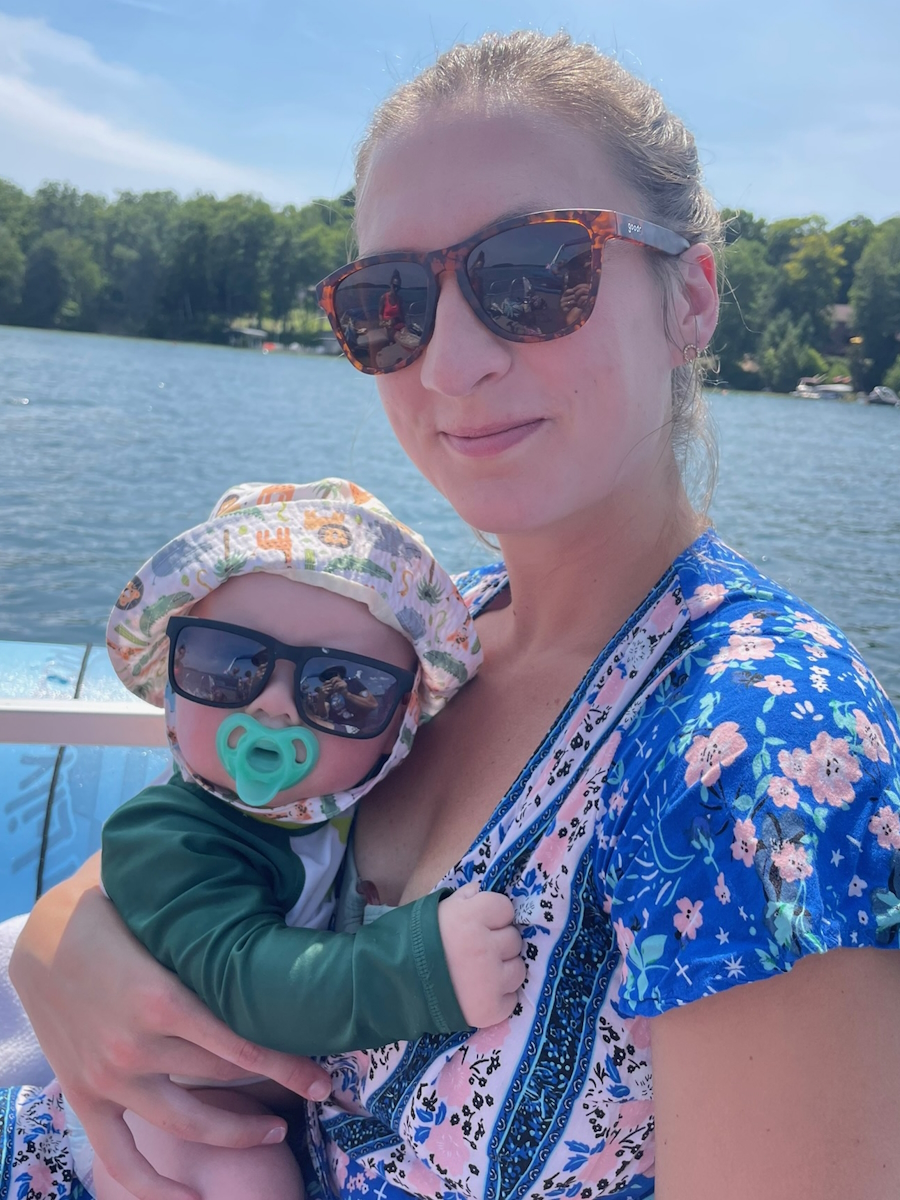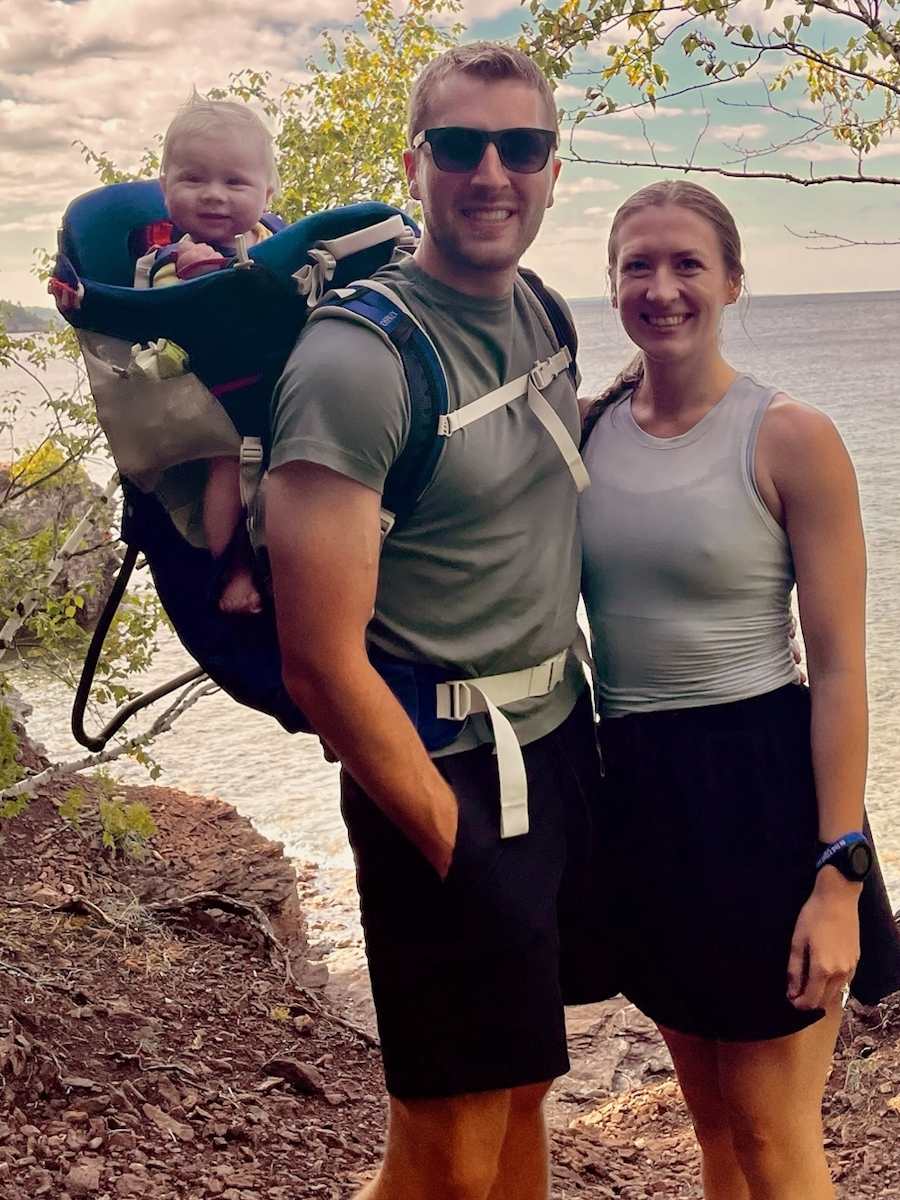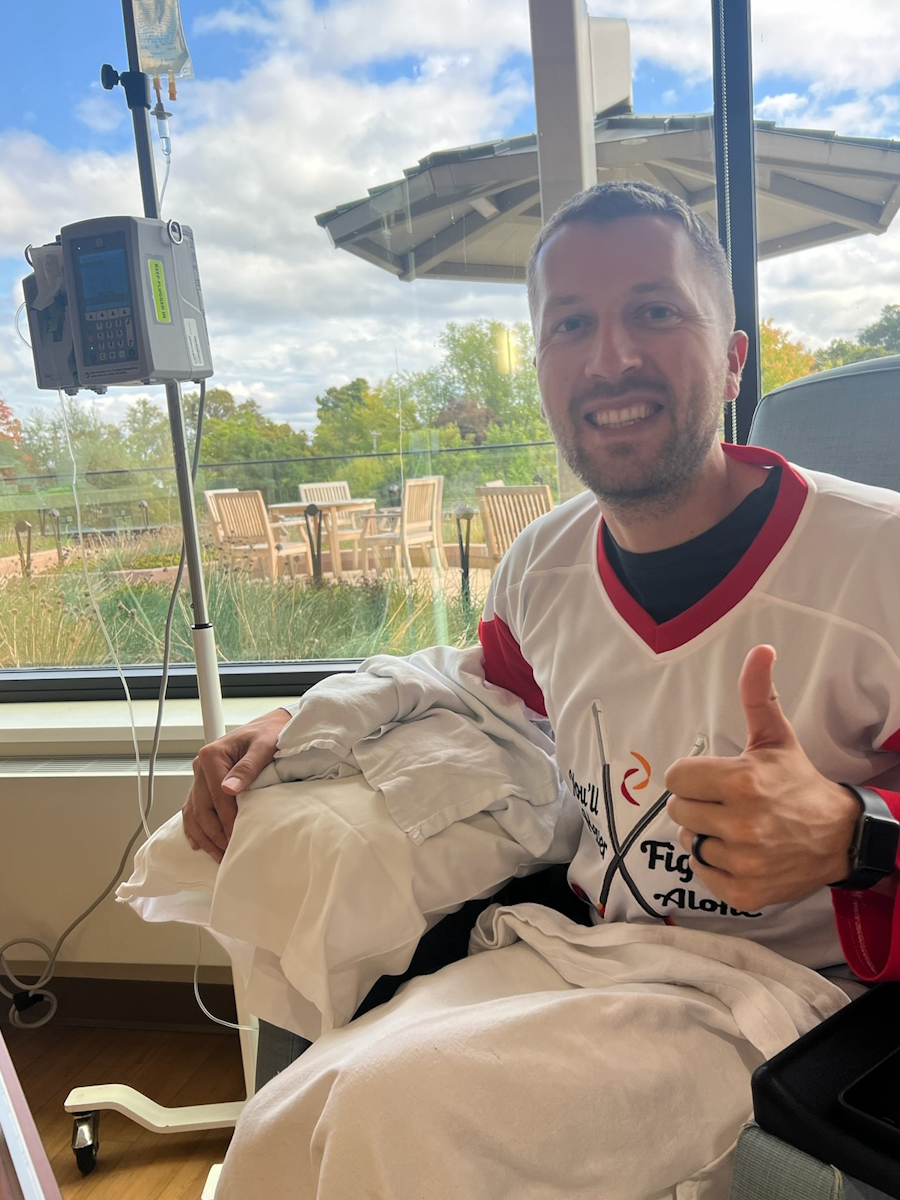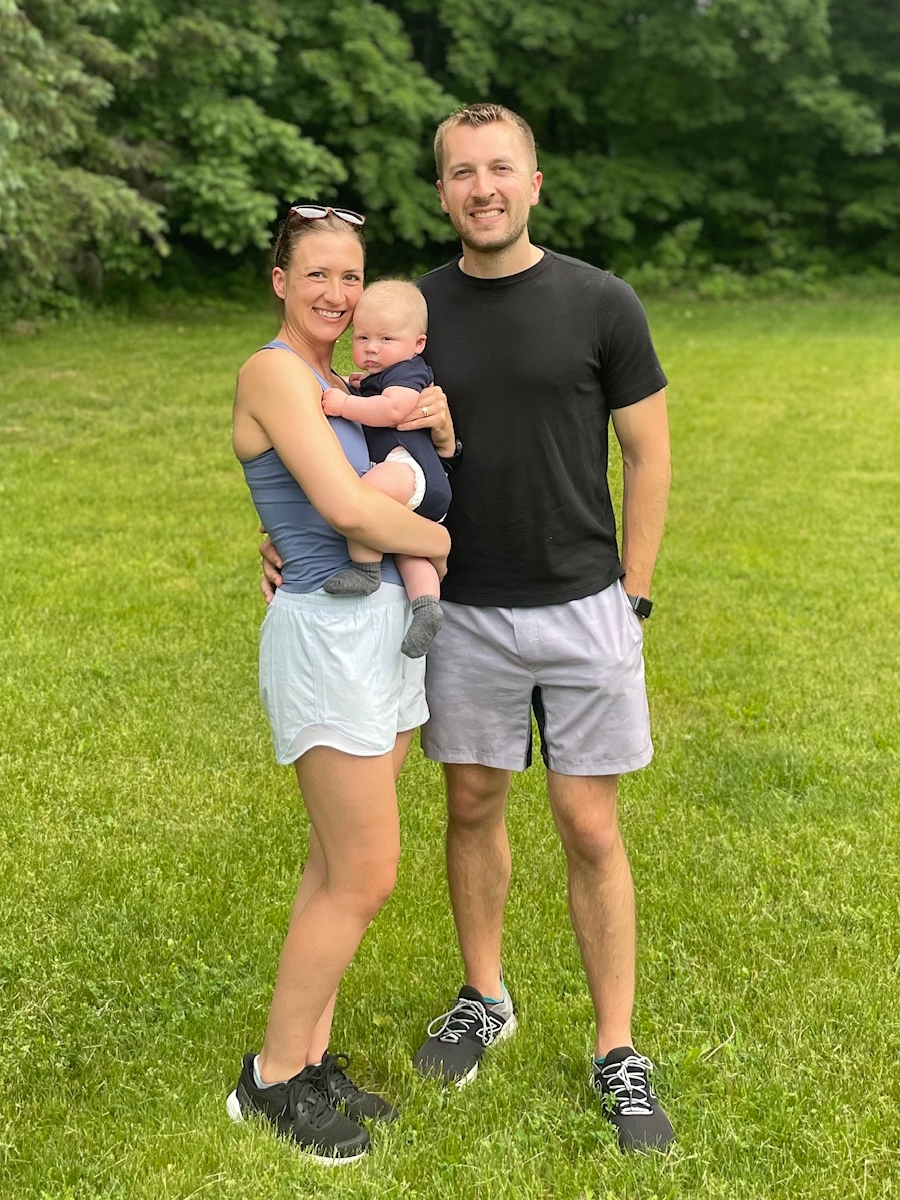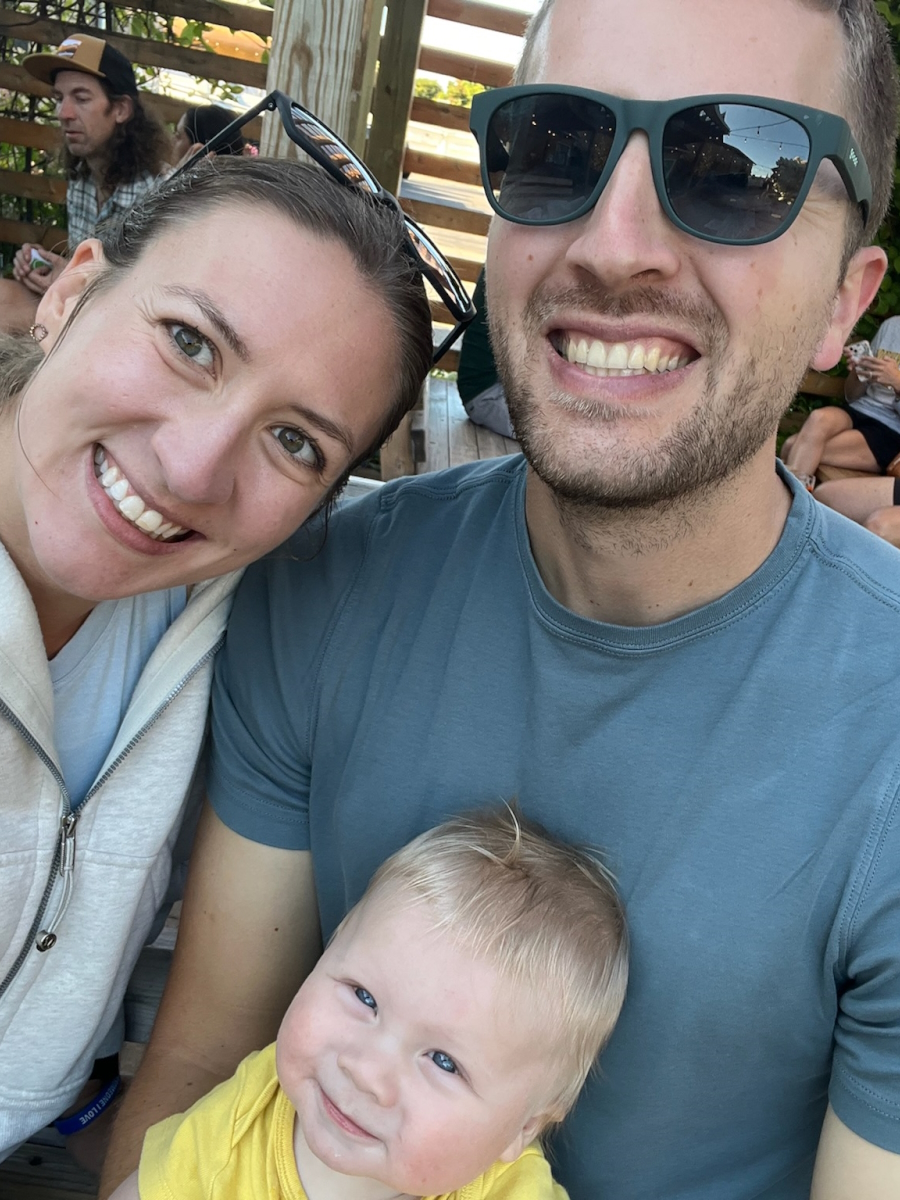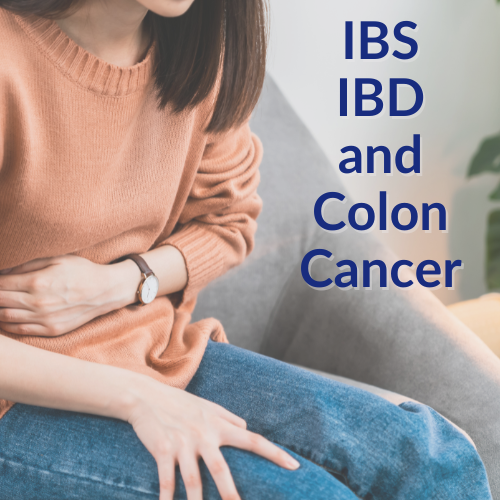Paul’s Stage 3 Rectal Cancer Story
Interviewed by: Taylor Scheib
Edited by: Katrina Villareal

Paul was diagnosed with stage 3 rectal cancer in early 2024. He had initially experienced unusual bowel-related symptoms, such as frequent bowel movements and loose stools, for over a year before his diagnosis. During a routine physical in late 2023, he brought up his concerns to his doctor, who advised monitoring the symptoms, suspecting inflammation or a dietary issue. Over the next few months, the symptoms persisted and eventually worsened, with the appearance of blood in his stool. This led to a referral to a gastroenterologist, who recommended a colonoscopy, ultimately revealing a sizable tumor.
Paul admits he might have downplayed his symptoms had it not been for his wife, who urged him to seek further medical evaluation. Despite being young and in good health, Paul and his doctors initially considered alternative diagnoses like ulcerative colitis, Crohn’s disease, or diverticulitis, conditions more common in people his age. However, his intuition and his wife’s insistence that something more serious was at play led to the colonoscopy, where the tumor was discovered.
The diagnosis was a shock to Paul and his wife, especially since they had recently welcomed their first child and were enjoying other life milestones. The colonoscopy revealed a tumor consistent with rectal cancer and further tests, including a biopsy, confirmed it was malignant. Additional imaging, such as a CT scan and an MRI, revealed that the cancer had spread to nearby lymph nodes, leading to a stage 3 diagnosis.
Paul began his treatment plan, which included chemotherapy, radiation, and eventual surgery. His medical team opted for CAPOX chemotherapy and planned for radiation therapy to follow. The goal was to shrink the tumor and affected lymph nodes to make surgical resection more effective. Radiation was strategically moved closer to the surgery timeline to avoid excessive scar tissue formation.
Paul is also passionate about raising awareness, particularly among younger people, about the rising rates of colorectal cancer. Encouraged by his wife, he started sharing his experience on social media where his videos discussing symptoms and the importance of early detection reached hundreds of thousands of viewers. He emphasizes the importance of being one’s own health advocate, urging others not to ignore symptoms or delay crucial medical tests like colonoscopies. The high cost of these procedures for those under 45 prompted Klug to advocate for better insurance coverage, as the financial barrier often leads to dangerous delays in diagnosis.
Despite the challenges, Paul remains optimistic and is determined to use his platform to spread awareness, especially among younger individuals, about the importance of recognizing cancer symptoms early.
- Name: Paul K.
- Diagnosis:
- Rectal Cancer
- Staging:
- Stage 3
- Symptoms:
- Frequent bowel movements
- Loose stools
- Blood spotting in stool
- Treatments:
- Chemotherapy: CAPOX (capecitabine and oxaliplatin)
- Radiation
- Upcoming surgery: colon resection
This interview has been edited for clarity and length. This is not medical advice. Please consult with your healthcare provider to make informed treatment decisions.
The views and opinions expressed in this interview do not necessarily reflect those of The Patient Story.

Inspired by Paul's story?
Share your story, too!
More Rectal Cancer Stories
Jessica A., Rectal Cancer, Stage 4 (Metastatic)
Symptoms: Changes in bowel movements, blood in stool, abdominal pain, back pain, difficulty sitting comfortably, constipation, feeling of incomplete evacuation (as if some stool remained after bowel movements), mucus-like stool consistency, bloating
Treatment: Immunotherapy under a clinical trial
Shiva S., Rectal Cancer, T2, and Renal Cancer, T3
Symptoms: Pressure and urgency of bowels, back pain
Treatments: Chemoradiation (for rectal cancer), surgery (ileostomy, combined bowel and kidney surgery), immunotherapy (for kidney cancer)
Jeanine B., Rectal Cancer, Stage 3 (T3bN0M0)
Symptoms: Long history of bleeding that was blamed on hemorrhoids, pain in the tailbone, urgent need to use the restroom, unusually narrow stools, presence of mucus in stools, fatigue
Treatments: Chemotherapy, radiation therapy
Devon B., Rectal Cancer, Stage 4
Symptoms: Pain when trying to move bowels, increased frequency of bowel movements alternating with periods of constipation, passing mucus instead of feces, narrow stools
Treatments: Surgery (ostomy surgery), radiation therapy, chemotherapy
James K., Rectal Cancer, Stage 3C/4
Symptoms: Occasional rectal bleeding, increasing fatigue
Treatments: Chemoradiation, surgeries (coloanal pull-through, temporary ileostomy, ileostomy reversal, permanent colostomy), adjuvant chemotherapy
Denelle C., Rectal Cancer, Stage 3B
Symptoms: Irregular bowel movements, frequent rectal bleeding, sensation of incomplete evacuation
Treatment: Chemoradiation (oral chemotherapy and radiation therapy)

